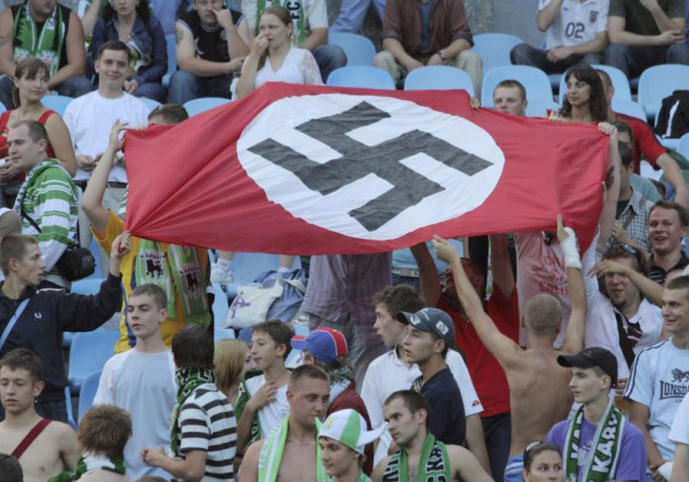European Jews are experiencing widespread feelings of insecurity because of the resurgence of the extreme right, anti-Zionism on the left and radical Islam, according to a global study of antisemitism.
A survey published by the Kantor Center found that last year the number of recorded violent antisemitic incidents fell by around nine per cent compared to 2016 – and by almost 50 per cent compared with the 2006-14 average – but that there was a notable increase in harassment and abuse.

The study, reported by the Guardian, points to a strengthening of the extreme right in some European counties, 'accompanied by slogans and symbols reminiscent of the 1930s' and 'the intensity of the anti-Jewish sentiments expressed in a variety of ways [...] especially on street demonstrations'. This, it says, may explain a discrepancy between the levels of fear among European Jews and the actual number of incidents.
'Expressions of classic traditional antisemitism are back and, for example, the term "Jew" has become a swear word,' the report says.
The 105-page paper examines the prevalence of antisemitism in Europe, the post-Soviet region, the US, Canada, Australia, South America and South Africa. It details 327 major incidents of violence, vandalism and desecration in 2017, compared with a peak of 1,118 in 2009 and a low of 78 in 1989, the year the study began. Some 30 per cent of attacks were directed at individuals, 20 per cent at cemeteries and memorial sites, and 17 per cent per cent at synagogues, the report found.
The decrease is attributed to better security and intelligence, more government spending, fewer Jews identifying themselves as such on the street, and the attention of rightwingers diverted onto the issue of rising immigration.
It adds: 'But – and this is a major point – this situation is not necessarily perceived in Jewish communities as a sufficient positive development, because the presence of security measures means that they are a necessity, and mainly because it is overshadowed by the many verbal and visual expressions, some on the verge of violence, such as direct threats, harassments, hateful expressions and insults. These take place in working places, schools, universities, playgrounds, near Jewish homes and institutes, on football/soccer fields, during demonstrations in the streets, and all the more so in the social networks.'
The report notes that in the last weeks of 2017 and the first months of 2018 a number of demonstrations took place in different countries after Donald Trump's controversial announcement that the US was recognising Jerusalem as Israel's capital.
The move resulted in attacks on Jews, antisemitic slogans, including calls for murder, and the burning of the Israeli flag. 'These incidents do not necessarily originate in Muslim and Arab circles and countries, but rather come from a variety of groups and circles, from most of the political spectrum, left-wing groups included.'
The report warns of, 'The rise of leftist antisemitism that supports radical Muslim anti-Israeli attitudes expressed in antisemitic terms such as in the BDS [boycott, divestment and sanctions] and Antifa [militant anti-fascist] movements, and certainly in the UK Labour party led by Jeremy Corbyn.' It adds that many Jews in the UK were 'losing their traditional political home' in the Labour party.
It also says that as a result of insecurity, an increasing number of Jews were no longer wearing identifying items in public or attending synagogues on Jewish holidays.
The report says: 'Once some Jews do not participate in Jewish traditional gatherings, do not appear in the public sphere identified as Jews, avoid mentioning their real name on the internet, do not openly support Israel, if communities run out of the financial resources given heavy security costs and not much is left for culture and education activities – the ability to live a full Jewish communal and individual life is jeopardised, and so is Jewish identity.'









